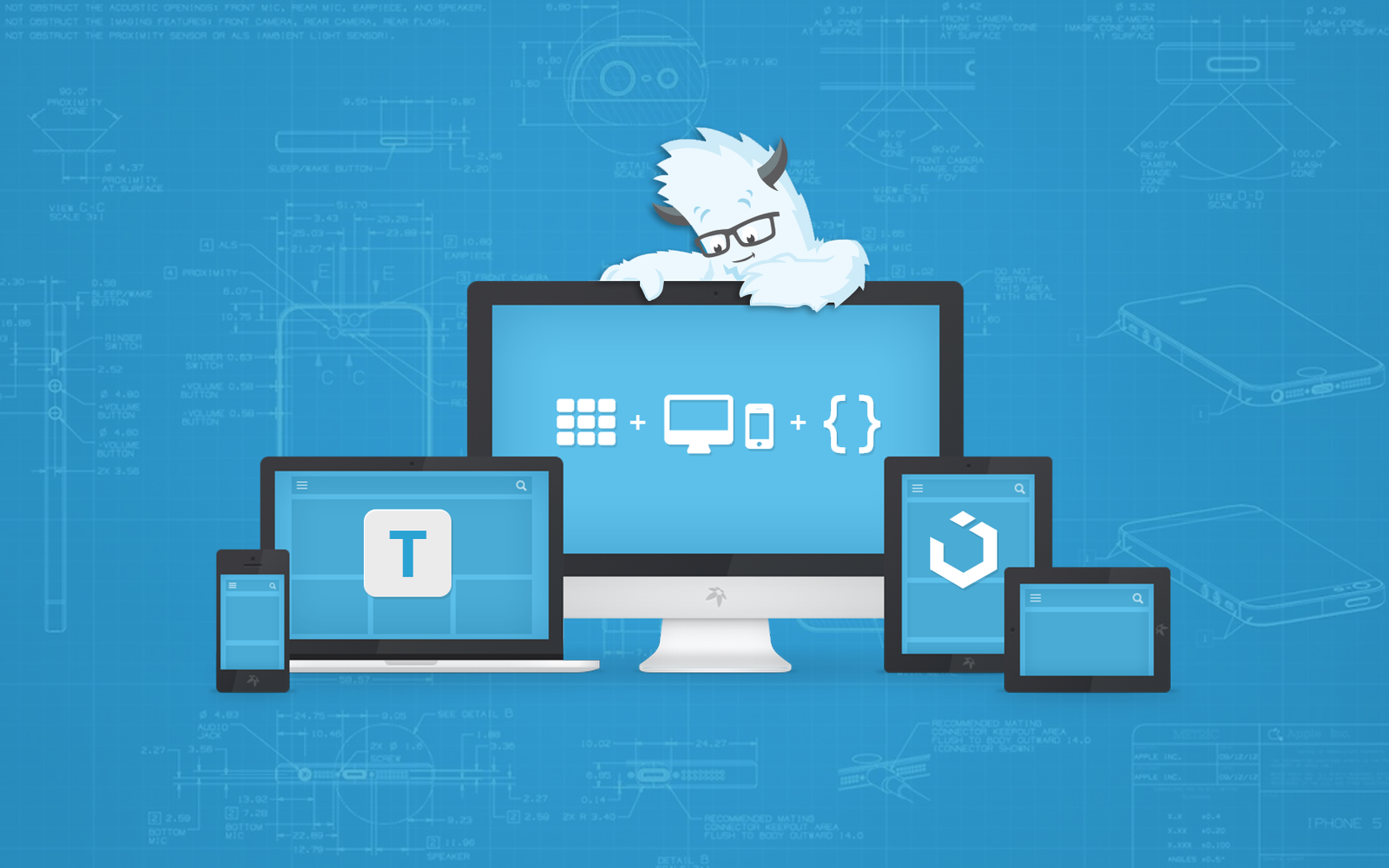
The continuous development of dynamic and cross-browser compatible websites and apps, web developers need to go beyond standard development practices to build and develop designs. Fortunately, there are several frameworks available over the web, giving developers the wherewithal to improve the efficiency and performance and efficiency of their designs. Most importantly, the frameworks offer a flexible means and multiple options to save development time.
Below is a list of 10 remarkably useful frameworks that can be used for development projects associated with website and application development
1) UIkit
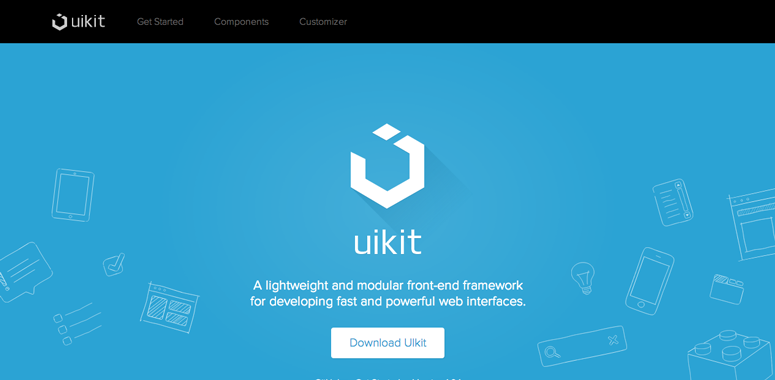
According to an online report, around 99% of usability problems occur because of slow response time caused by web interfaces. Thus, it becomes important to create fast web interfaces. This is where the open source UIKit framework comes in handy. It is a lightweight and modular framework ideal to be used for front-end development. It provides developers with a rich set of simple-to-use and customizable HTML, JavaScript and CSS components.
2) Reveal.js
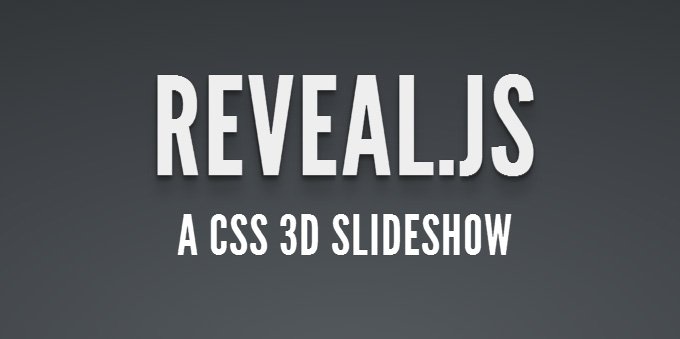
Want to create slick presentations using HTML? Do you wish to add some movement or transition between the slides in your HTML presentation? This can be achieved with the help of Reveal.js. The framework helps in creating touch-optimized presentation slides that look great on any device – be it a mobile, phone or tablet. You can choose to add different transition styles to the slides like Fade, Zoom, etc.
Also See: Top 12 Frameworks for Android App Development
3) TouchStone.js
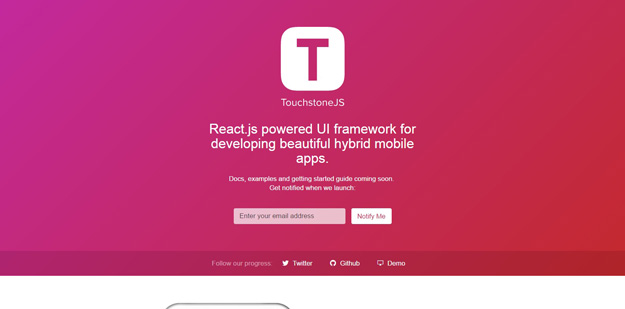
If you’re an app developer and wanting to build beautiful hybrid mobile apps, then Touchstone.js is worth a try. Powered by React.js, this UI framework comes fully-loaded features like native touch behaviors, navigation functions, form components and many more.
4) Skel.js
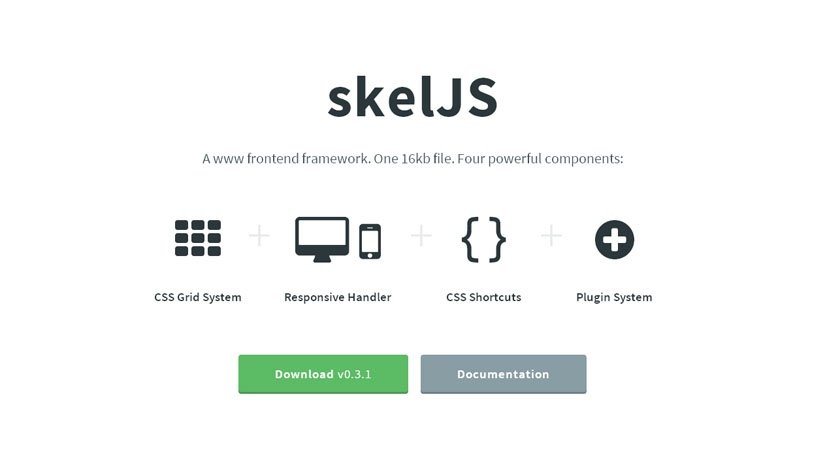
Skel.js is a lightweight framework that helps in building responsive layouts for websites and apps. It contains a suite of features that helps designers and developers’ ability to create powerful responsive designs. Here’s the list of features that this framework includes:
- CSS Grid System
- Responsive Handler
- CSS Shortcuts
- Plugin System
Also See: 12 Small Web Frameworks for Ruby Developers
5) Foundation
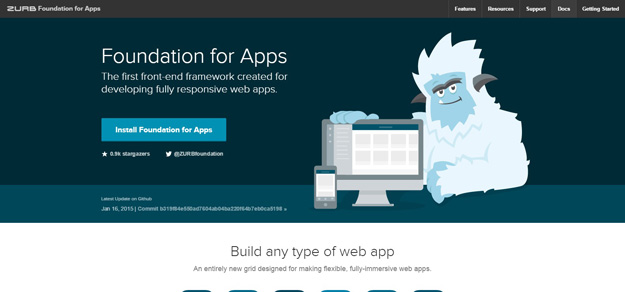
This is another great front-framework, preferred by developers across the world for building responsive web design. This is simply because this framework helps in developing front-end code quickly. What’s more, it offers lots of features, including responsive grid, code snippets, buttons and many more interface components that helps in creating custom CSS in no time. And thus, help save time for the coding job. Foundation is an open source project and can be downloaded from Github.
6) Whiteboard Framework

Developing a WordPress theme isn’t an easy task and requires you to pay heed to several aspects. You’ll probably have to spend a lot of time in completing the job. But, what if you can cut down your development time and speed up the process of development? You can achieve this objective using the Whiteboard framework. It helps beef up the theme development process, by reducing the time you need to spend on writing code for the WordPress themes. It features a minimalist design giving you the ability to build a WP theme easily, without any unnecessary functions. Furthermore, it includes non-intrusive code that helps in optimizing a WordPress theme usability, mobile support, and SEO.
Also Check: 18 Minimal Web Frameworks for PHP
7) Mootor
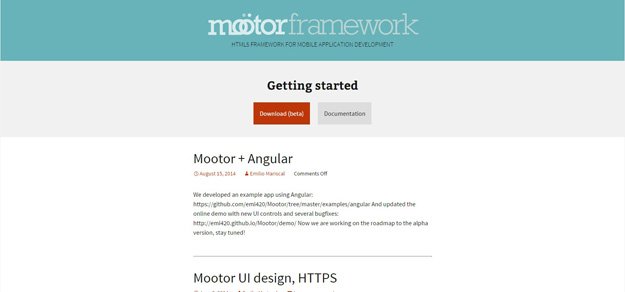
Since the popularity of creating a minimalistic design is increasing, it becomes important for developers to search for tools that can help them address such need. Mootor is an HTML5 framework that offers a minimalist design for building mobile apps.
8) Knockout
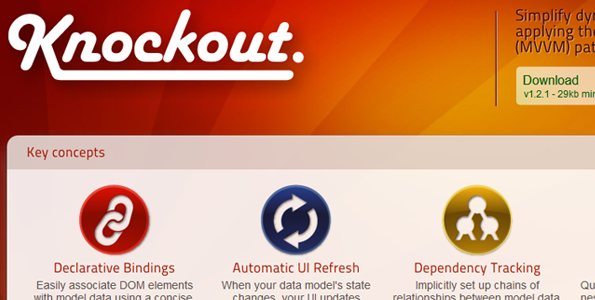
Knockout is an ideal framework for developers wanting to develop simplified JavaScript user interfaces based on the Model View View Pattern (MVVM). This is a pure JS library that works in tandem with any server-side or client-side technology. Knockout can work on any modern web browser – be it Firefox 6+, Safari, Chrome and others.
Also See: 12 Web Application Frameworks for Node.js
9) Base

Base is a responsive framework based on Normalize.css – that works in sync with the old as well as modern browsers. Unlike other responsive frameworks, Base won’t cause weariness by providing the same themes to work on. Instead, this framework contains only the core essentials that help in building a custom theme – for all sorts of devices small or large ones.
10) WordPress Plugin Boilerplate 3.0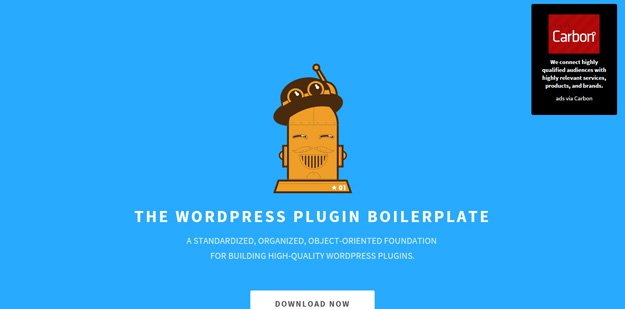
The third edition of WordPress Plugin Boilerplate features a major rewrite of the plugin boilerplate. It presents a more specific organizational structure for building quality WordPress plugins. It includes comments that help guide developers about the variable or function they should be working on when utilizing the boilerplate. The new edition contains classes for everything like plugin activation, deactivation and Internationalization and much more.
Conclusion
Hope that reading this post will provide you useful insight about the frameworks, you can use for completion of your development project effectively.
I am wondering why Bootstrap Framework is missed out. I see lot of people using this. Still i see many new frameworks, which i have never touched.
hey! I just wish to give an enormous thumbs up for the great data you might have right here on this post. I will likely be coming again to your blog for more soon.